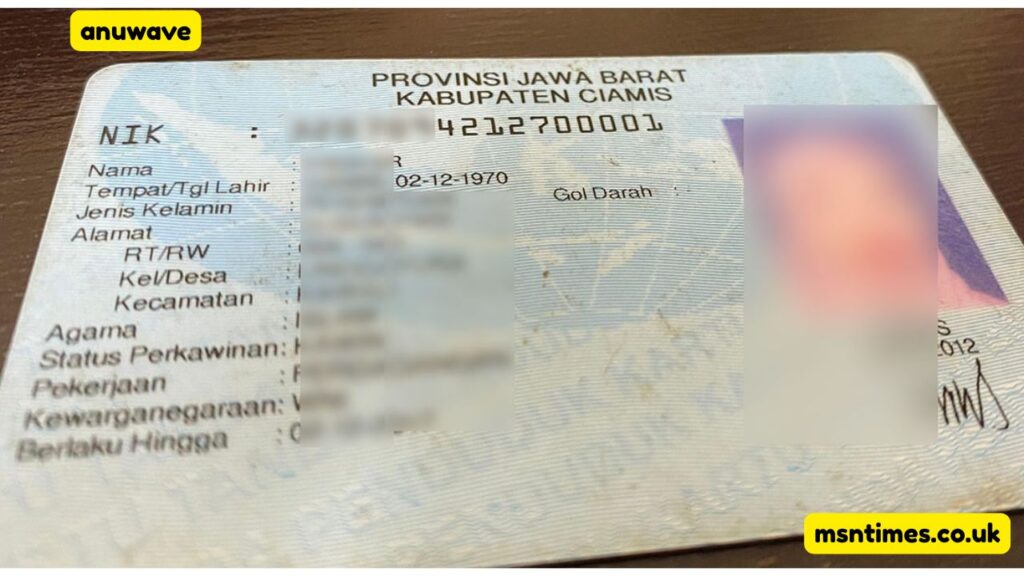Introduction: What Is Indukation?
The term indukation is an emerging or lesser-known word that appears alongside official identity discussions, particularly in the context of Indonesian population registration systems. While indukation may be a stylized or misunderstood variation of “induk” (meaning core or central in Bahasa Indonesia), it is often associated with the term nomor induk kependudukan — a central part of Indonesia’s identity management system.
This article explains the relationship between indukation and nomor induk kependudukan (NIK), how the NIK system works, why it’s important, and how it fits into Indonesia’s push toward digital governance and smart identity verification.
What Is Nomor Induk Kependudukan (NIK)?
The nomor induk kependudukan (translated as population identification number) is a unique 16-digit number assigned to every Indonesian citizen and resident. It is issued by the Dinas Kependudukan dan Pencatatan Sipil (Disdukcapil)—the Department of Population and Civil Registration.
This number is printed on the Kartu Tanda Penduduk (KTP), Indonesia’s national identity card, and functions as the primary identifier for accessing government and administrative services.
Functions of Nomor Induk Kependudukan:
- National identity verification
- Voter registration
- Taxpayer ID linkage
- BPJS (health insurance) enrollment
- Banking and financial services
- SIM (driver’s license) issuance
- Passport registration
- Online government services
In essence, the NIK is the backbone of Indonesia’s digital identity ecosystem.
Indukation: What Could It Represent?
The keyword indukation is not widely recognized as an official Indonesian term, but it could refer to:
1. A digital interpretation of identity centralization
“Indukation” may be a blended or stylized term suggesting “induk” (core or main) and “registration” or “verification” – essentially alluding to centralized identity processing.
2. A branding term or internal software
It’s possible indukation is used internally in digital platforms, apps, or academic models to refer to identity activation, digitization, or biometric linking in population databases.
3. Typographic variation of “Induk”
If indukation is a typo, it could simply be a phonetic interpretation or misspelling of “induk,” which is frequently used in Indonesian administrative terms (e.g., induk perusahaan = parent company; induk data = master data).
Regardless of the origin, the association with nomor induk kependudukan suggests that indukation refers to something within or closely related to identity systems and personal data registration.
Structure of the Nomor Induk Kependudukan (NIK)
The 16 digits of the NIK are not random—they contain encoded information about the cardholder:
- First 6 digits: Province, city, and district code (based on administrative region)
- Next 6 digits: Date of birth and gender (female birthdates have +40 added to the date)
- Final 4 digits: Registration number (ensuring uniqueness)
Example:
3175095603920010
- 317509 = Jakarta Selatan
- 560392 = 16 March 1992 (56 = 16 + 40, indicating female)
- 0010 = 10th person registered on that date
This structure allows government agencies to validate information and cross-reference demographics, age, and region without a separate database lookup.
NIK and Digital Governance in Indonesia
Indonesia is undergoing a massive digital transformation under the SPBE (Sistem Pemerintahan Berbasis Elektronik) initiative, aiming for fully integrated, paperless public services. The nomor induk kependudukan plays a pivotal role in this evolution.
Use of NIK in E-Government:
- Single Sign-On (SSO): Citizens can access services across ministries using their NIK
- Digital Health Passport: Vaccine records and medical info linked via NIK
- Subsidy Distribution: Government subsidies are transferred using NIK-verified databases
- E-KTP (Electronic ID): Biometrics like fingerprints and iris scans tied to the NIK
The system enhances data accuracy, prevents duplication, and increases citizen trust in government systems.
Challenges with NIK Implementation
Despite the benefits, the nomor induk kependudukan system also faces several real-world challenges:
- Data leaks and privacy breaches due to centralized storage
- Errors in record linkage, especially in rural or remote areas
- Duplicate entries or NIK conflicts due to manual input during field registration
- Low digital literacy, especially among the elderly and in underserved regions
These issues need continuous improvement in infrastructure, cybersecurity, and user education.
How to Check or Use Your NIK
If you’re wondering how to check or validate your nomor induk kependudukan, there are a few methods:
1. Via Dukcapil Offices
Visit your local Disdukcapil office with original documents (KTP, KK).
2. Through the Official Website
Some regional governments offer NIK verification online via their portal.
3. WhatsApp Dukcapil 24/7 Service
Indonesian residents can also message the Dukcapil WA Hotline for inquiries.
4. Bank or BPJS Integration
Many banks and healthcare systems use your NIK to confirm eligibility or match data.
Frequently Asked Questions (FAQs)
1. What is indukation?
Indukation may refer to the process or concept of digital identity registration, possibly tied to the Indonesian population database. It may be a stylized reference to “induk” (main/core).
2. What is nomor induk kependudukan?
It’s a 16-digit personal identity number issued to all Indonesian citizens and residents, used to access official services, benefits, and national systems.
3. Is NIK required for daily services?
Yes. It’s essential for nearly all formal interactions, including healthcare, banking, education, travel documentation, and digital apps.
4. Can NIK be used outside Indonesia?
It may be requested at embassies or consulates abroad for services involving passports, inheritance, or repatriation.
5. How do I update my NIK data?
Visit your local Disdukcapil office with supporting documents (e.g., for name change, marital status, or address updates).
Final Thoughts
The rise of centralized digital identity systems like Indonesia’s nomor induk kependudukan marks a turning point in how governments serve citizens. And while indukation may still be an ambiguous or evolving term, its association with identity frameworks suggests a growing interest in how personal data, security, and digital governance intersect.
As Indonesia moves further into the digital age, tools like the NIK and terms like indukation will become increasingly vital to both policy and daily life.
Also Read : Lucy Symons-Jones: A Rising Name in Media, Advocacy, and Influence
